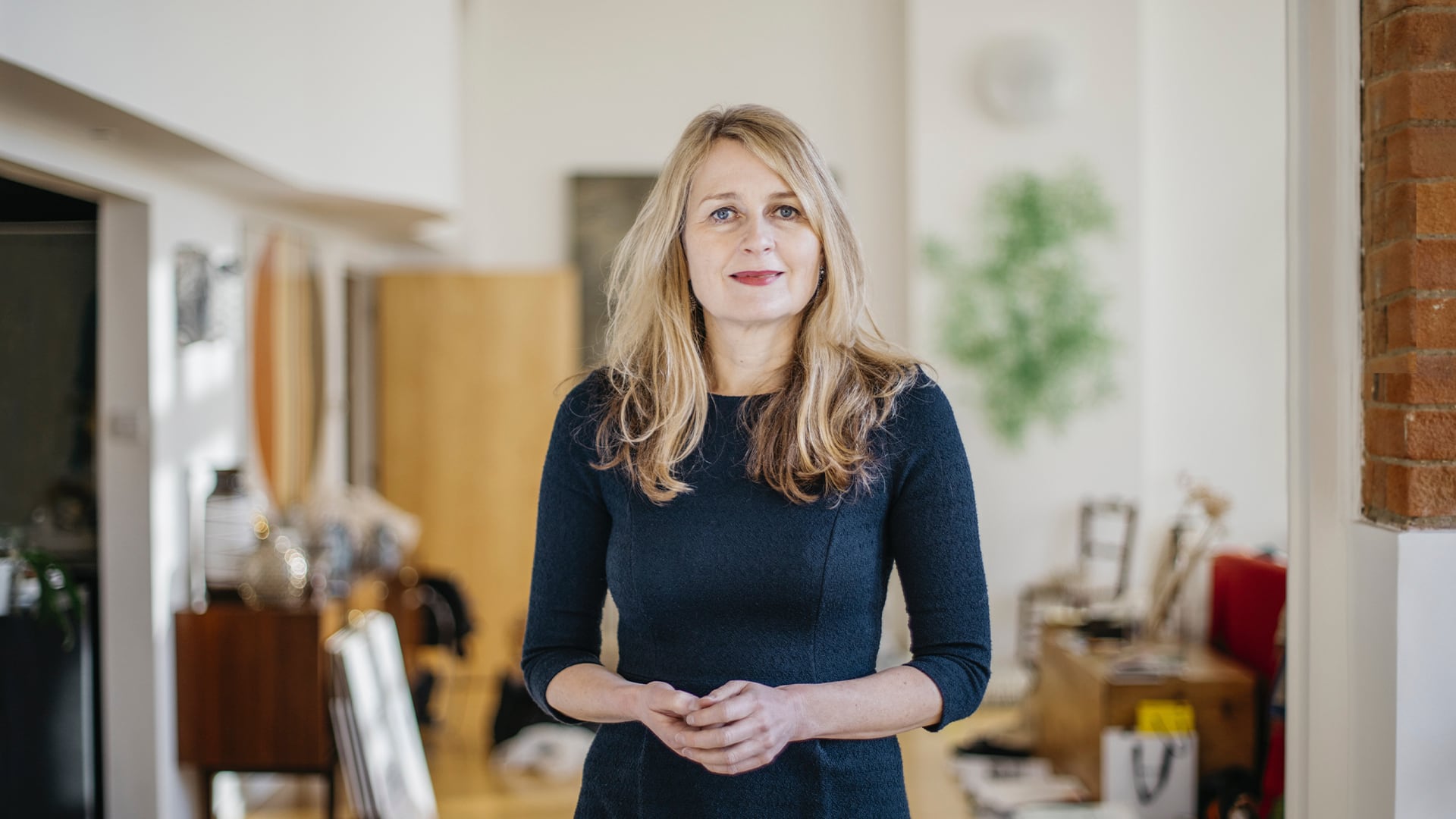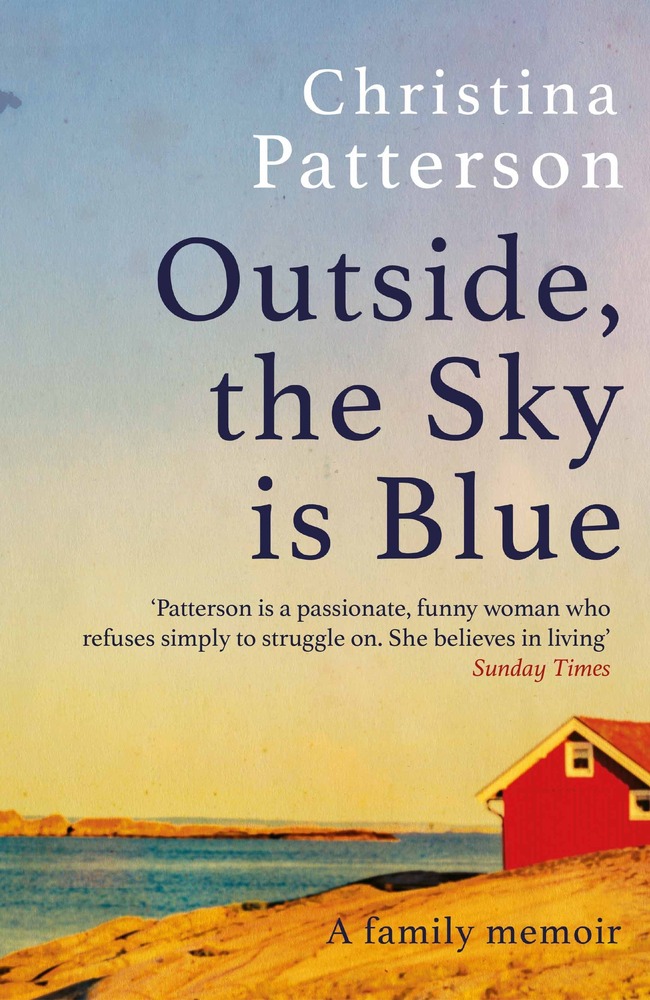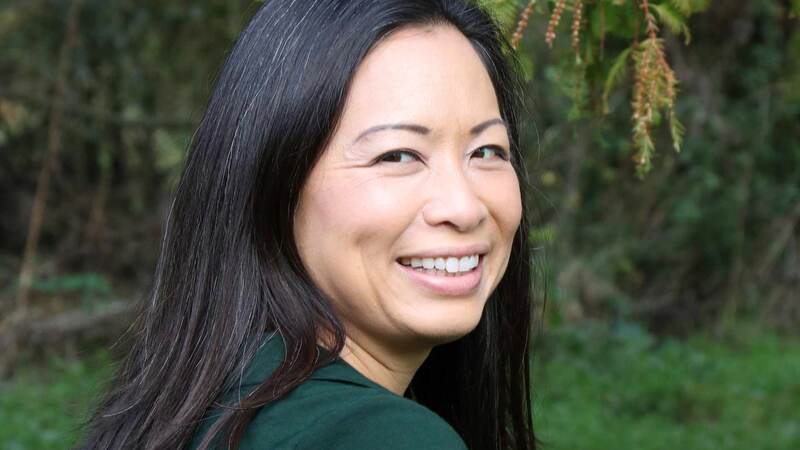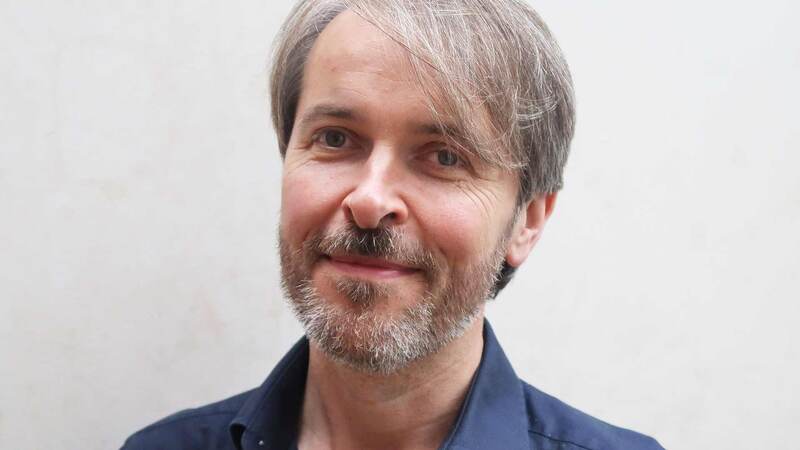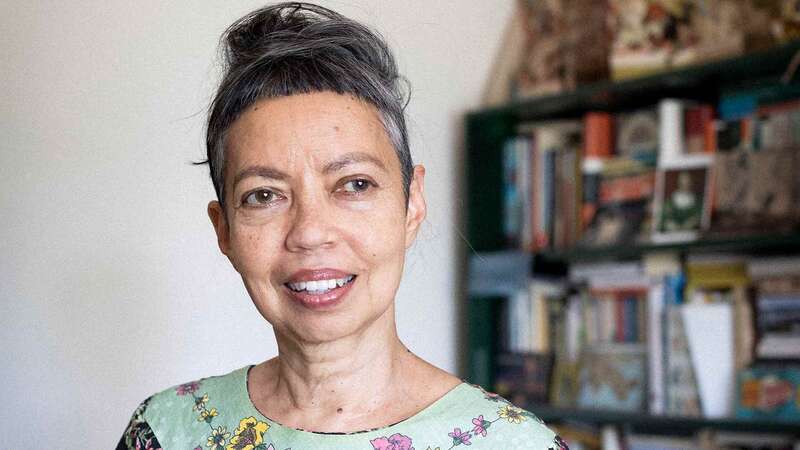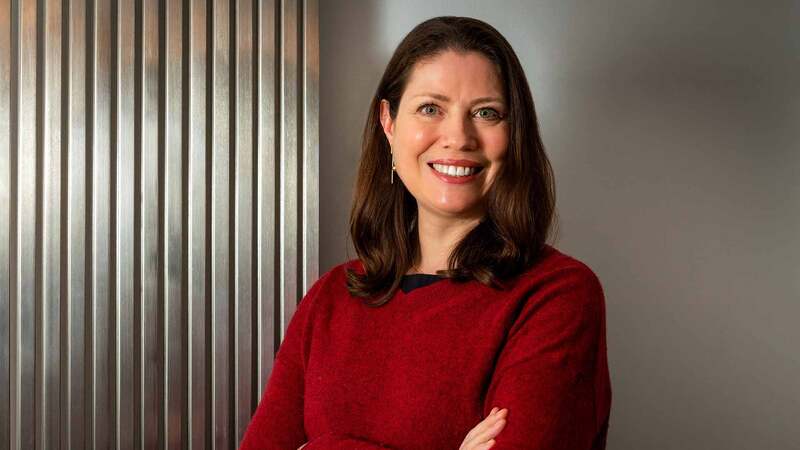You are viewing your 1 free article this month. Login to read more articles.
Christina Patterson on Outside, the Sky is Blue
 Caroline Sanderson
Caroline SandersonCaroline Sanderson is a non-fiction writer, editor and books journalist. Her books include a travel narrative, A Rambling Fancy: in the F ...more
Writer Christina Patterson returns with a memoir about family, mental illness, cake and fortitude.

Caroline Sanderson is a non-fiction writer, editor and books journalist. Her books include a travel narrative, A Rambling Fancy: in the F ...more
"In our family we didn’t have weddings; only funerals.”
In 2018, writer and broadcaster Christina Patterson published The Art of Not Falling Apart, a poignant and wryly funny memoir charting her two cancer diagnoses, depressing dates with unsuitable men, the death of her sister and a devastating redundancy. Taking in interviews with the likes of Frieda Hughes and Benjamin Zephaniah about their own griefs and disappointments, it’s both an antidote to glib self-help books, and a paean to the art of soldiering on, with the help of friends, books, coffee, cake, wine, parties and crisps.
Death felt very imminent. I have had cancer twice, and I lost my brother at 57 and my sister at 41. Then a pandemic hit. So I thought: ‘I’ve just got to write this story before I die’.
Four years on comes Outside, the Sky is Blue (Tinder Press), a magnificent family memoir in which Patterson reveals the true extent of what she has weathered. It recalls Lorna Sage’s Bad Blood or Don’t Let’s Go to the Dogs Tonight by Alexandra Fuller, but has a quiet power all its own. At its outset Patterson introduces us to her Scottish Presbyterian father and Swedish Lutheran mother, who meet on a hill in Heidelberg, Germany, in the 1950s, fall in love at first sight and embark on an outwardly glamorous married life, living initially in Thailand, where their first child, Caroline, arrives; and then in Rome where a son, Tom, and then youngest sibling Christina are born. Then the family moves back to the UK, settling into a suburban life in Surrey in a house which had “laughter and games and toys and dolls to play with and books to read and felt pens to draw with and roast chicken on a Sunday”. From the outside, the sky appears blue indeed. But on the inside, storm clouds are gathering as a result of Caroline’s erratic behaviour. After she is diagnosed with schizophrenia, and with her parents struggling to cope, Caroline’s siblings begin to seek solace elsewhere: Tom in sport, and Christina at a youth club where she hopes to meet boys, but instead finds God.
In the acknowledgements at the end of the book, Patterson, now in her late fifties, reveals that it is a story she has wanted to tell for many years. “I was aware that my experience of born-again Christianity, followed by dramatic loss of faith, was relatively unusual”, Patterson tells me when we speak via Zoom. As she was first considering writing about it more than two decades ago, she began to suffer bouts of immobilising physical pain, diagnosed at the time as lupus. She made a start on the story, but couldn’t make it work. “So I parked it and then became fantastically busy at work.” After a first job at Faber & Faber, Patterson worked at the Southbank Centre, where she programmed and presented literary events with the luminary likes of Gore Vidal, Susan Sontag and Umberto Eco. Subsequently she became director of the Poetry Society, and then left to join the Independent, first as deputy literary editor and later as one of its lead interviewers and columnists. In 2013 came a dramatic redundancy, soon after she had been shortlisted for the Orwell Prize for a series of articles about the NHS. This blow led directly to the writing of The Art of Not Falling Apart. “At that point, my overwhelming grief about the loss of my job and of my identity felt the more burning issue,” she tells me.
When her sister Caroline died in her early forties, Patterson writes of feeling as if “the world had flipped over and we were in a new landscape covered with dust and rocks”. Soon afterwards her father died of cancer, and later she lost her mother. Then during the pandemic, Patterson’s brother Tom—the last member of her immediate family still alive—also died, suddenly. Poleaxed, Patterson embarked on the harrowing task of clearing out his house, sifting through the boxes of letters, papers, photo albums and other belongings which made up her family’s archive. This process gave urgent impetus to the telling of the story that became Outside, the Sky is Blue. “Death felt very imminent. I have had cancer twice, and I lost my brother at 57 and my sister at 41. Then a pandemic hit. So I thought: ‘I’ve just got to write this story before I die’.”
All this makes Outside, the Sky is Blue sound like a grief memoir extraordinaire. But that is not how it reads. “Although I am the last one left, I see the four deaths in the book as an unfortunate red herring in an awful way,” confirms Patterson. “The heart of the book is about the effect of a mental illness on a family”. It’s also a powerful story about the blows that life deals us and how we carry the distress that they cause. “I carried mine in my body, which has been not great in all kinds of ways. But it’s there in all of us.” Patterson was influenced by an interview she did a few years ago with the renowned psychoanalyst Darian Leader. “He talked about ‘enigmatic cycles of illness’; how illness can be reflected across and echoed in a family—in relation to autoimmune disease in particular. Hearing that was incredible because it is the nearest I have come to an evidenced link between Caroline’s schizophrenia and my own weird manifestations of physical pain.” In the book, she writes: “My body has often said the things I feel I can’t say.”
Outside, the Sky is Blue is also a story of keeping sane and of carrying on, of forging your own path that does not conform to parental expectations, and of how love within a family can endure even the sternest tests. And, being a Christina Patterson book, it is also a celebration of the small pleasures in life, which many of us came to take less for granted during the pandemic. Patterson’s love of coffee and cake, for example, inherited from her Swedish mother.
In the main, Outside, the Sky is Blue seems to be saying it is partly these small things—as opposed to God, self-help books, Instagram gurus and TEDx talks—that get us through. Patterson concurs. “Everyone has to discover how to cope with things in their own way, and what works for one person isn’t necessarily going to work for anyone else. My experience is that endlessly banging on about your misery, unfortunately, doesn’t solve it. Having a lovely chat with friends over a bottle of wine and some Kettle Chips is much more likely to cheer me up than talking about how depressed I am”.
“That which does not kill us, makes us stronger” wrote Friedrich Nietzsche, and while this isn’t true for everyone, Patterson and I settle on the word “fortitude” to describe the resilience which her parents displayed throughout their lives, and which she now realises she has inherited. Outside, the Sky is Blue is her tribute to the “sweet, kind, witty, slightly eccentric, ever-persevering Pattersons”. And towards the end of the book, the clouds do begin to clear.
Patterson is a gifted writer, one who beautifully employs the power of words to articulate how we might endure the slings and arrows of outrageous fortune that at some point in our lifetimes are aimed at all of us. She jokes that during her time at the Southbank Centre and the Poetry Society, and then as a literary journalist and interviewer, there was always a part of her that was “exploding with envy and bitterness and resentment that other people were writing while I couldn’t”. Now she too is employing her own writing in the belief that “art is always about showing every human that they are not alone”.




